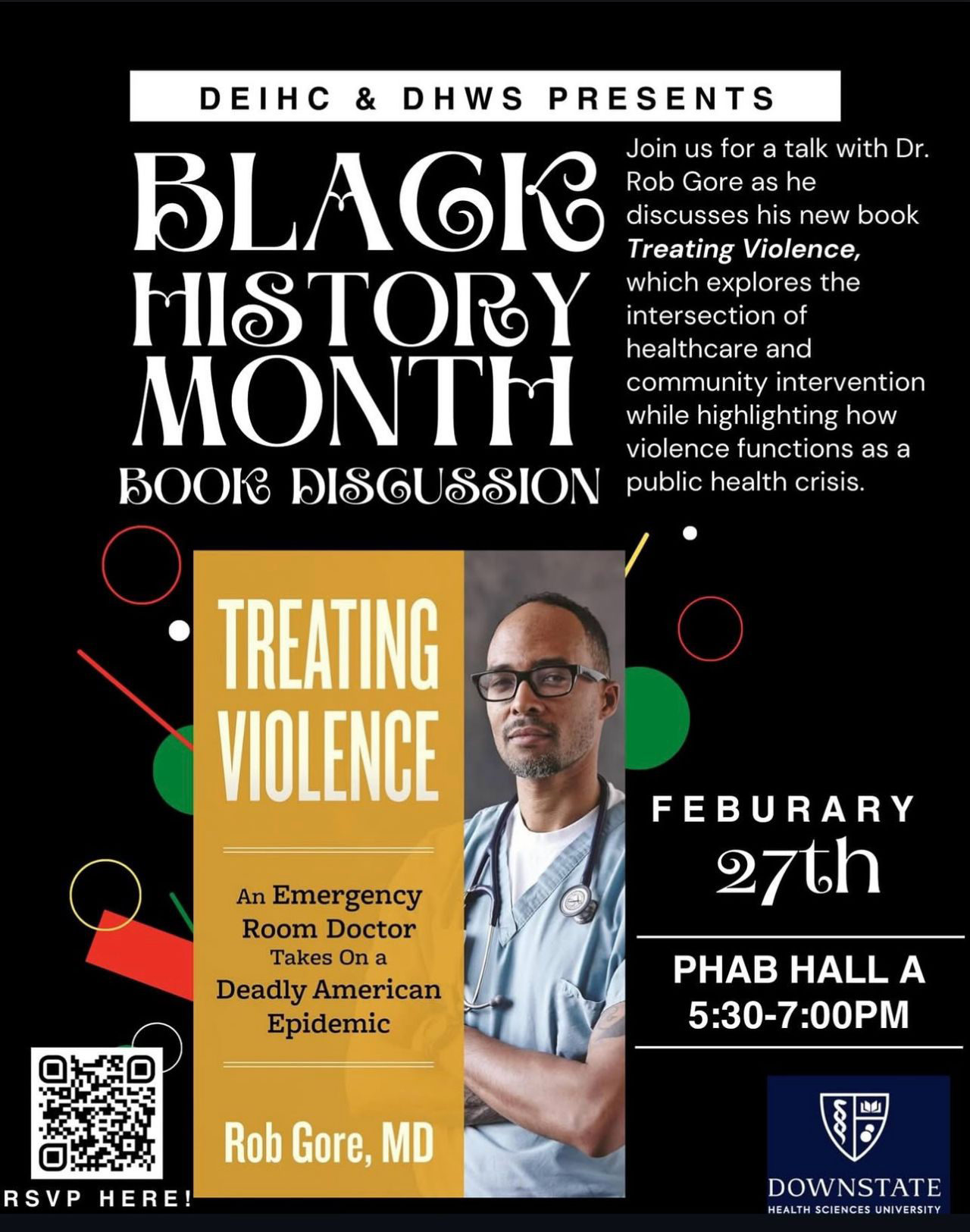Treating Violence: Dr. Robert Gore on Medicine, Mentorship, and Community Action
By Office of the President | Mar 25, 2025
 Robert Gore, M.D., Clinical Assistant Professor of Emergency Medicine and founder of the Kings Against
Violence Initiative (KAVI), recently joined students, faculty, and staff for a Black
History Month conversation about his new book, Treating Violence: An Emergency Room Doctor Takes On a Deadly American Epidemic. The discussion focused on trauma, resilience, and the role of healthcare in addressing
violence at its roots.
Robert Gore, M.D., Clinical Assistant Professor of Emergency Medicine and founder of the Kings Against
Violence Initiative (KAVI), recently joined students, faculty, and staff for a Black
History Month conversation about his new book, Treating Violence: An Emergency Room Doctor Takes On a Deadly American Epidemic. The discussion focused on trauma, resilience, and the role of healthcare in addressing
violence at its roots.
Dr. Gore, a Brooklyn native raised in Fort Greene and Flatbush, earned his Bachelor of Science in biology from Morehouse College and his medical degree from the University at Buffalo. During his residency at Chicago’s John H. Stroger Jr. Hospital, he saw firsthand how survivors of violence isn’t just a crime issue; it’s a public health crisis. Many of the patients he treated were survivors of violence who cycled in and out of the hospital, reinforcing the urgent need for prevention beyond the ER.
In 2009, Dr. Gore launched KAVI to fill a critical gap in care for youth affected by violence. What started as a grassroots initiative focused on mentorship and conflict resolution has since grown into a nonprofit organization serving Brooklyn schools and hospitals. Today, KAVI provides case management, behavioral health services, and trauma-informed programs that support healing and safety for young people.
At the event, Dr. Gore reflected on his journey, underscoring the role of mentorship and community engagement in shaping both individuals and systems. He urged students to view themselves not only as clinicians, but also as advocates who can drive change beyond the exam room. Recalling the early challenges of building KAVI—including limited funding and administrative barriers—he emphasized the persistence needed to create lasting health programs in underserved communities.
His message was clear: treating the aftermath of violence isn’t enough. Healthcare professionals must take an active role in prevention, early intervention, and policy advocacy. His book, Treating Violence, combines personal experience with practical strategies, offering a roadmap for clinicians committed to building safer, more equitable communities.
The event was co-hosted by the Daniel Hale Williams Society, Downstate’s chapter of the Student National Medical Association, and the House Staff Council. Named after the trailblazing African American physician who performed one of the first successful open-heart surgeries, the Society focuses on leadership, education, community service, and advancing diversity in medicine.
Tags: Emergency Medicine